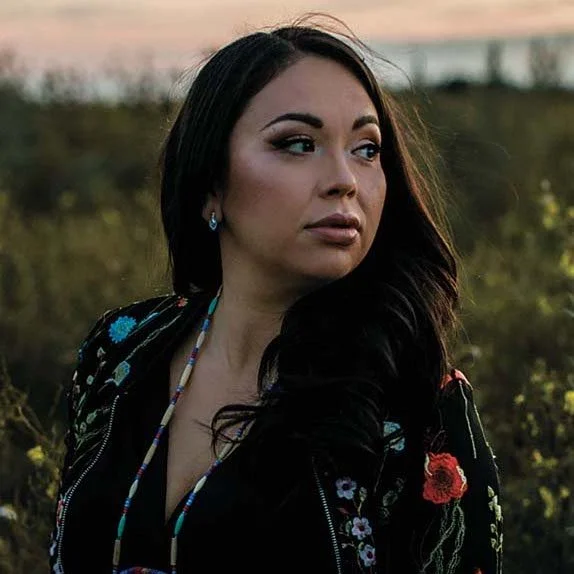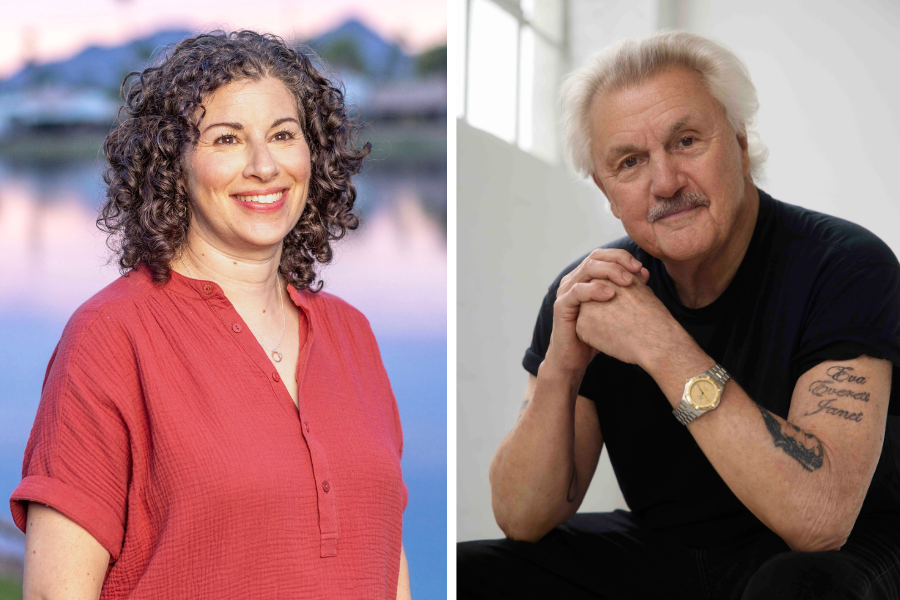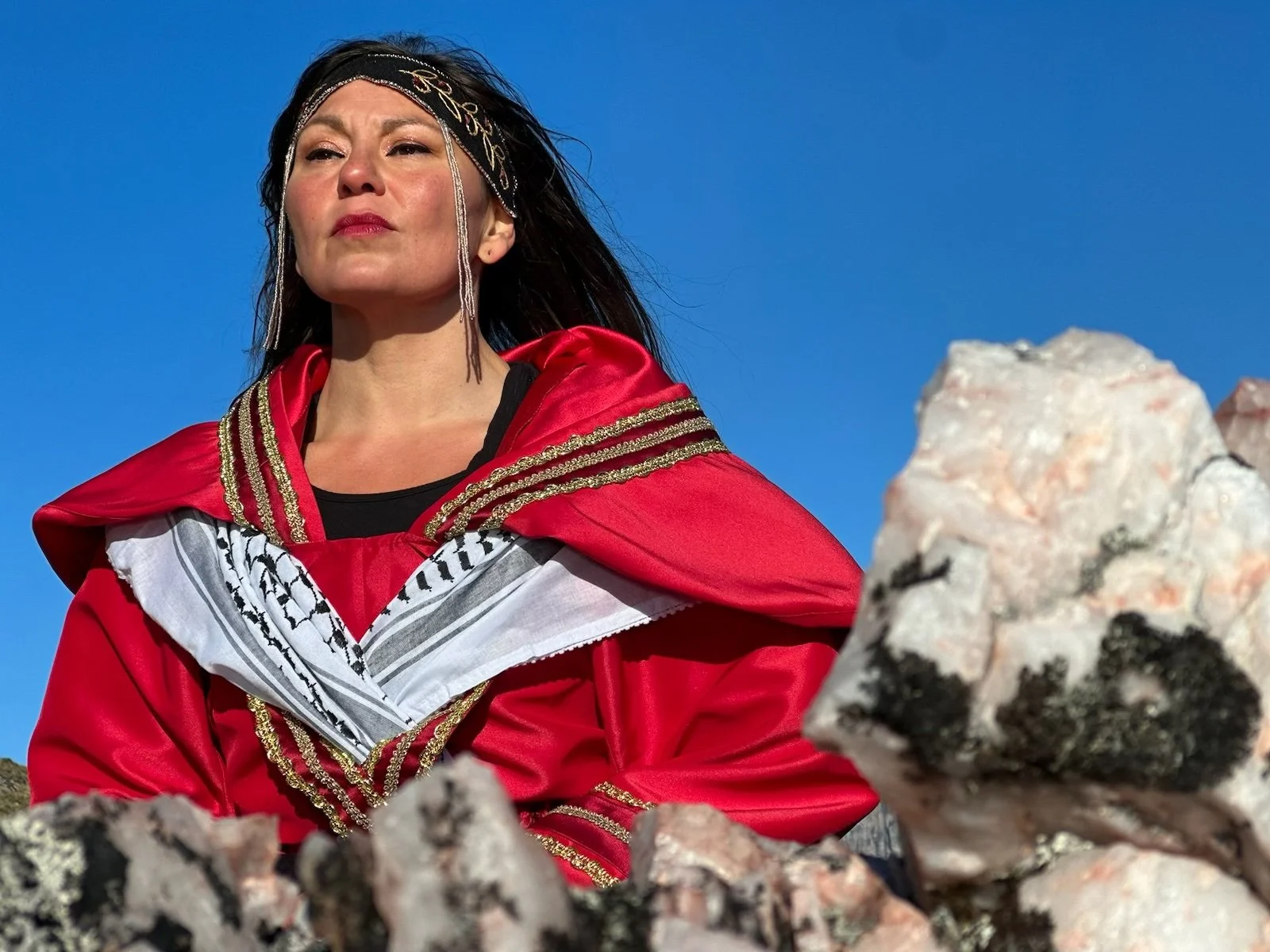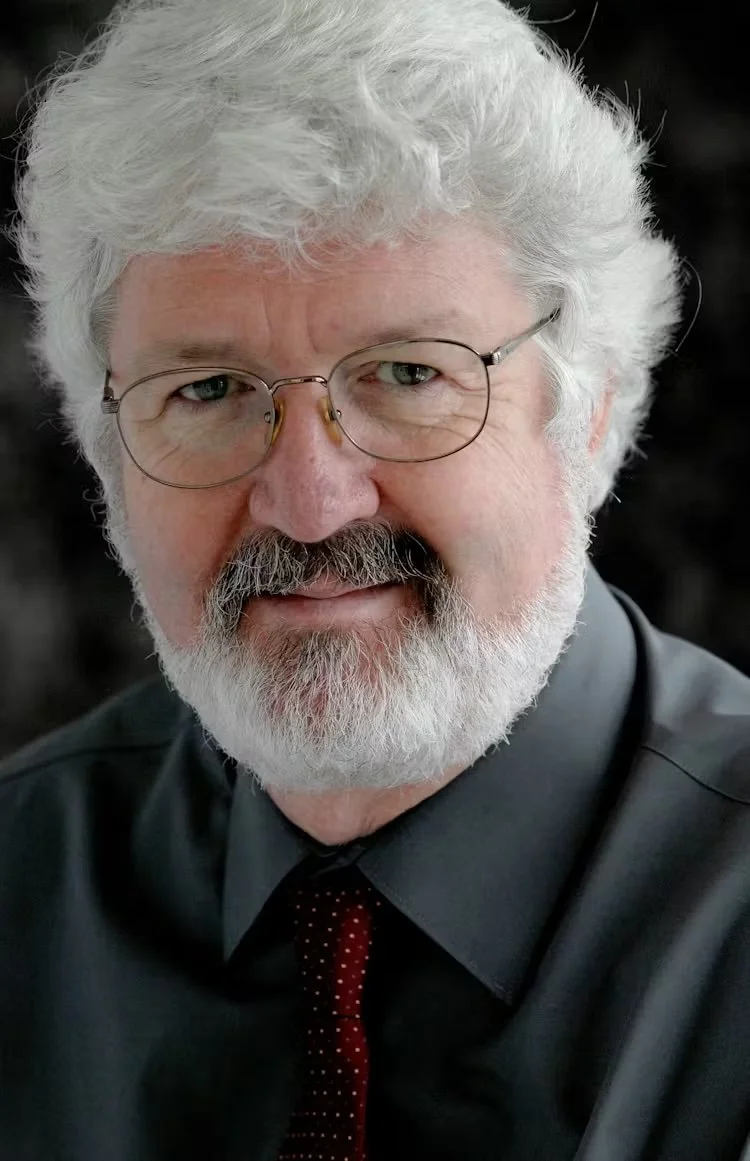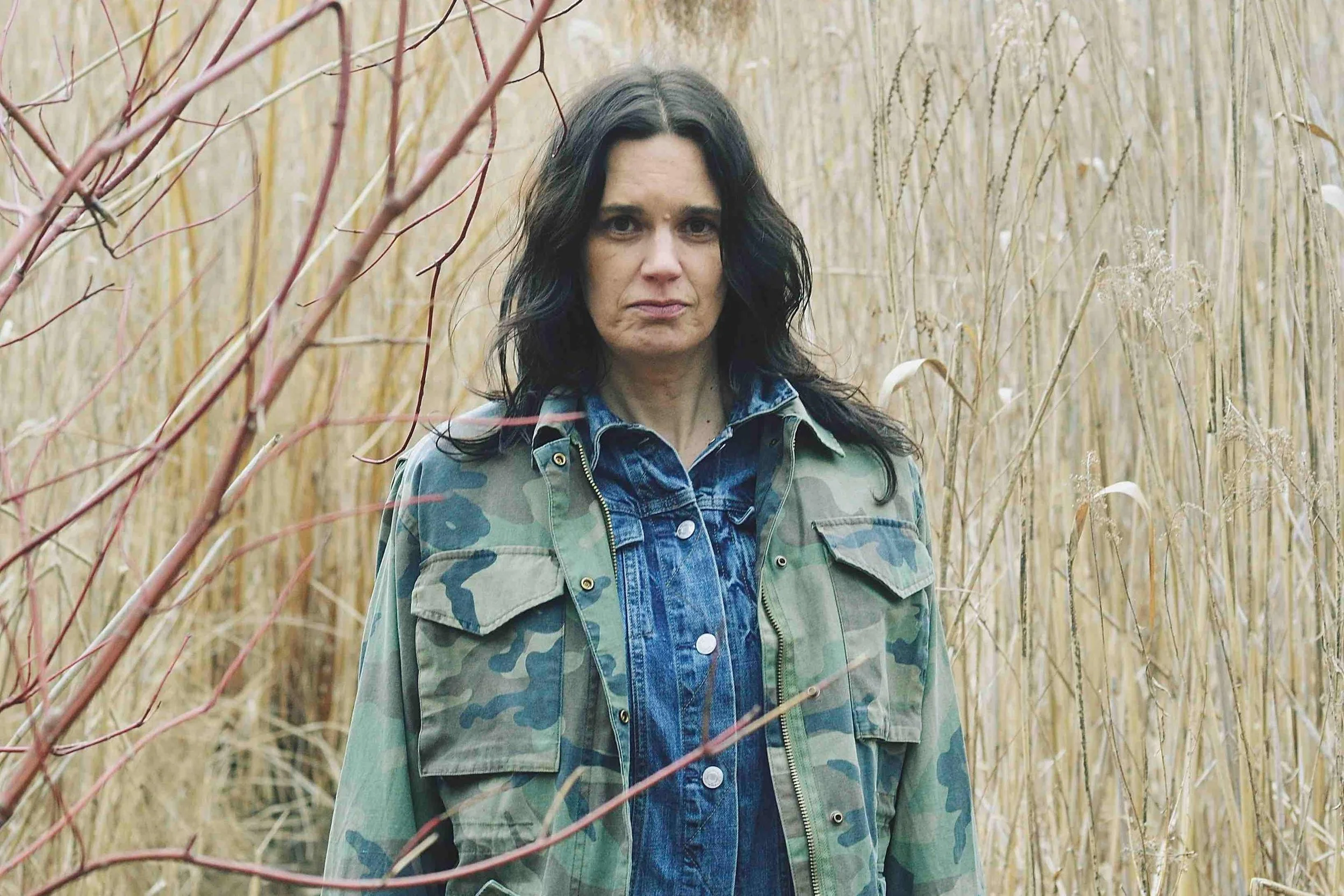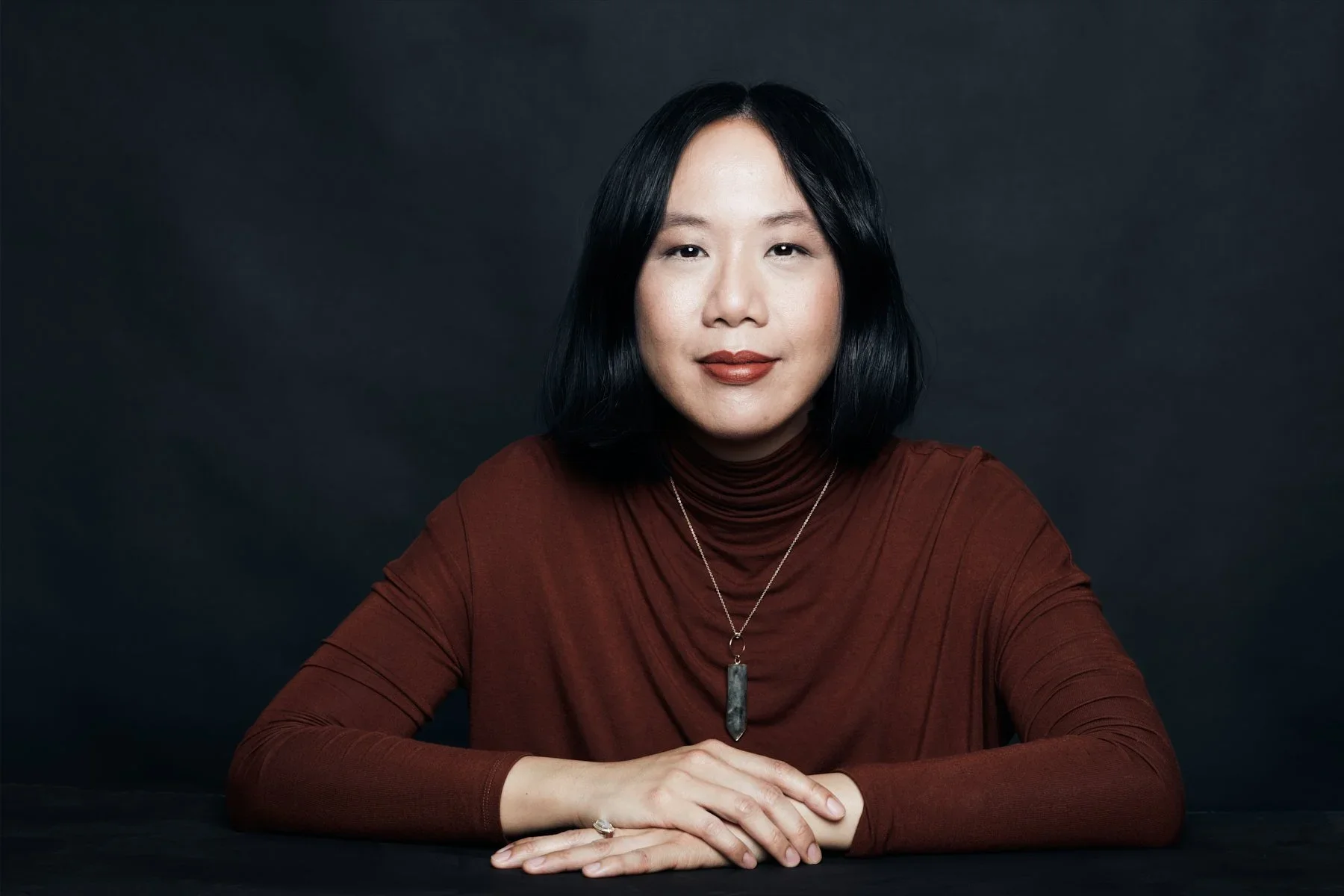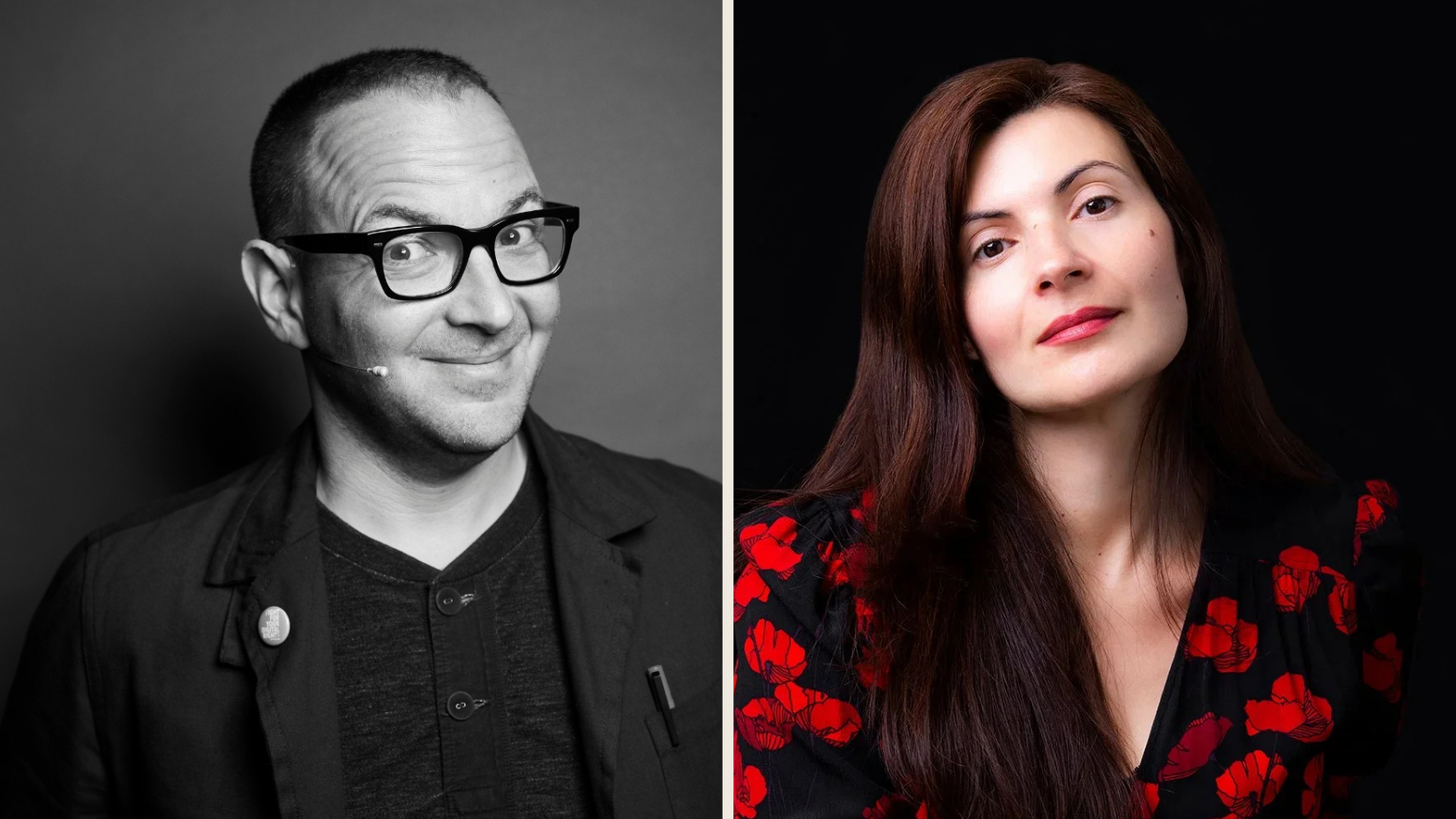At Vancouver Writers Fest, Helen Knott's Becoming a Matriarch processed the loss of strong women in her life
The In My Own Moccasins author’s second memoir charts her journey through grief to trusting her own intuition
Helen Knott. Photo by Tenille K Campbell
Helen Knott appears at Memoirs of Belonging at the Waterfront Centre on October 20 as part of the Vancouver Writers Fest
FOLLOWING THE RELEASE of her bestselling In My Own Moccasins, author Helen Knott debuts her second memoir, Becoming a Matriarch, at the Vancouver Writers Fest on October 20—and the book chronicles Knott’s search for meaning in the face of grief.
“Initially I was writing a different book, and when my world started changing and I was faced with losses of people that I loved in my life, I wished that writing could be a life raft that helped me through,” Knott says in a phone interview with Stir. “I thought I was creating a map forward to guide me in life.”
Knott, began writing Becoming a Matriarch (published by Penguin RandomHouse Canada) after losing both her mother and grandmother within the span of a year. They had both been guiding figures in Knott’s life, and without them, she found herself cast adrift.
“I grew up with really strong women that didn't take any shit, but also loved just as fiercely, and they provided a model for me of how I was to be in the world,” Knott says. “There were a lot of ways in which the women had learned how to survive harsh circumstances. As an adult, I've been learning about what I'm picking up and taking forward, and what I'm choosing to leave behind.”
“Having women like that in my life allowed me to walk with confidence in the world,” she continues. “If I was headed off in a direction and I was unsure of it, I would take that around to my aunties and my grandma, and if they said ‘Yes, that's the right way,’ I needed no other affirmation that I was on the right path and no one could tell me any different.”
Writing the memoir gave Knott an outlet to process her grief and learn to listen to the voice of her intuition in the absence of the women who guided her.
“If I'm writing for an audience, I will sit with the memory until I get into a space where I feel like a lot of my healing work has been done around that,” says Knott. “I'm very conscious of what I put out into the world and also don't want to put my own hurt and harm into the world. Sitting with it and refining it for the page demands that I go through my own emotional processes to get it to where it needs to be.”
Knott’s search for clarity led her from her ancestral homelands in the Dane Zaa territory of Northeastern B.C. to the streets of Antigua, Guatemala, and back again. She initially wasn’t sure why she felt called to travel, until she spontaneously embarked on what she calls a “side quest” to visit a somatic healer in Antigua.
“Upon having this experience with this healer individual in Guatemala, it made me realize that this is what I came here for,” Knott says. “The whole trip was for this moment, to get this healing to be able to learn how to be in my body in different ways, and have tools to help heal myself in different ways.”
So began Knott’s journey toward mending her grief. She learned to find solace in spending time on the land in her home territories, where she found that her foremothers’ presence still lingered.
“I find comfort in that, knowing that I can go to the Peace River and know that the river knows my mother, knows my grandmother, and has knowledge of my great grandmothers,” Knott says. “There's comfort in knowing that I am known. That the land knows me, and also holds the memory of the people that came before me.”
Knott explains her belief is that land holds memory with deep tenderness.
“In my early 20s, I remember walking by the river, and my grandma picked a medicine and made me roll it in my fingers and smell it,” she recalls. “She said, ‘Remember what the smell is like and what it feels like. This medicine can be passed into a wound and it'll stop the bleeding.’
“I think about that moment and every time I show one of my nieces or my little cousins that medicine, my grandma is so strongly present in that moment with me as I pass on that knowledge,” she continues. “It makes me think of who was present in her memory when she was teaching me that, and how we're all connected through these teachings, the memory, and then the medicine.”
After the loss of the women in her family, Knott says she felt called towards carrying on the legacy of the female figures who had guided her, both through her writing, and by the cultural rite of passage of stepping into a matriarchal role within her family and community.
“After my mom and my grandma passed away, I had that confirmation,” Knott says. “I’m relying on my upbringing and experiences, that I have the wisdom and knowledge to draw from to guide me in the right way.
“When I was writing this book, almost every time I opened up my laptop, I would be like, 'Okay, Mom, Grandma, I need you to write with me,'” she adds. “I would invite them into that writing space every time, because I am not ready to walk without them.”


